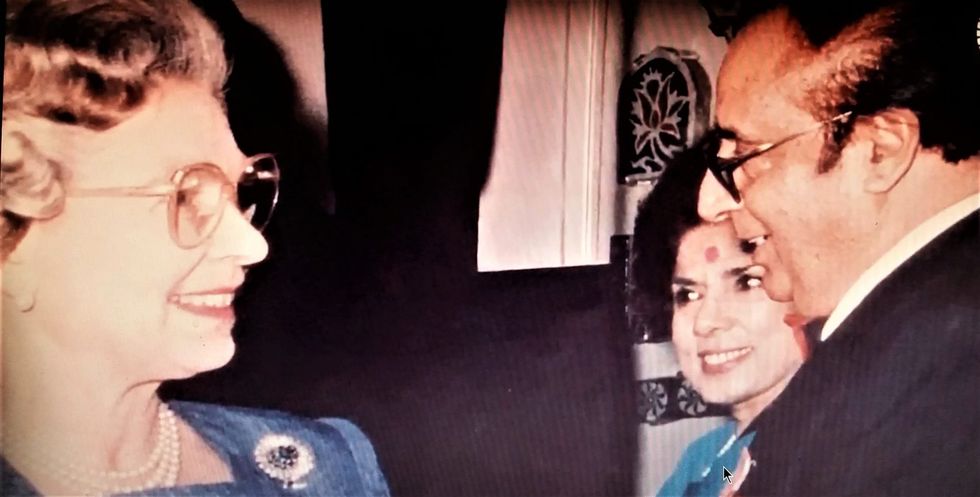RAJNI KAUL, who was married to Mahendra Kaul of the BBC and was a talented and well-read broadcaster in her own right, died on Tuesday (31), aged 92, in Faridabad near Delhi.
Her death was announced in London by her circuit judge daughter, Her Honour Judge Kalyani Kaul QC, who said: “She died peacefully in her sleep, after having her lunch at the wonderful Golden Estate in Faridabad where she had been staying during Covid-19 to protect her health.”
Rajni was predeceased by her husband, who died, aged 95, in London, on July 11, 2018. The couple met when working for All India Radio in Delhi in the early days after independence. Rajni worked for AIR, then for the Voice of America in Washington, as did her husband, and finally for the Hindi service of the BBC after she and her husband came to the UK in 1961. They made London their home.

Rajni was born in Peshawar on July 15, 1929, one of five children of Indernath and Sampiyari Kapur. After Partition in 1947, the family moved to Delhi where 17-year-old Rajni was recruited by AIR to sing songs in Punjabi and Pashto for a children’s programme and occasionally to read the news in Hindi.
It is there she met the Kashmiri Pandit, Mahendra Kaul, who was reading the news in Kashmiri and Urdu and producing drama. The couple married on May 2, 1955, and their daughter Kalyani was born in December 1960.
After the couple moved to Washington, Rajni qualified as a librarian. She had a love of books and considered it “heaven” when first ushered into a library. Her husband, meanwhile, worked for the Voice of America.
A new phase began when Rajni and Mahendra moved to London. While he pioneered TV programmes for newly-arrived Asian immigrants, Rajni specialised as a children’s librarian. She also worked for the BBC Hindi Service presenting a children’s programme, which was very popular in India. A generation of young people grew up with "Rajni didi" and she would get sackfuls of fan mail which she insisted on answering personally. She also presented a women’s programme.
Rajni assisted Mahendra when and launched tandoori chicken from the Gaylord restaurant in Mortimer Street near Broadcasting House in London. “He understands masala,” Rajni once said.
When Mahendra kept getting invitations from Downing Street, she joked: “Mahendra flirts with Margaret Thatcher – she loves it.”

According to one anecdote, when Mrs Thatcher came down the the stairs at 10, Downing Street, Mahendra looked up at Britain’s first female prime minister and exclaimed: “Wow! You look beautiful.” “You think so?” she said.
Throughout her life, Rajni tried to maintain her love of reading with her motto: “A book a day.” She did not care for romantic fiction, though.
She would read when taking the bus to Bush House in the Aldwych and even when walking to work. She would tell of the tall Englishman she bumped into and who admonished her, “Look up.”
In an interview with a former BBC colleague, Pervaiz Alam, she said she wanted to depart on her final journey with probably three books - something by the black American author Toni Morrison (“I am willing to touch her feet"), a translation from Japanese literature and Michelle Obama’s Becoming.
Kalyani said: “Her greatest love was for her grandchildren Symran and Callum.”




